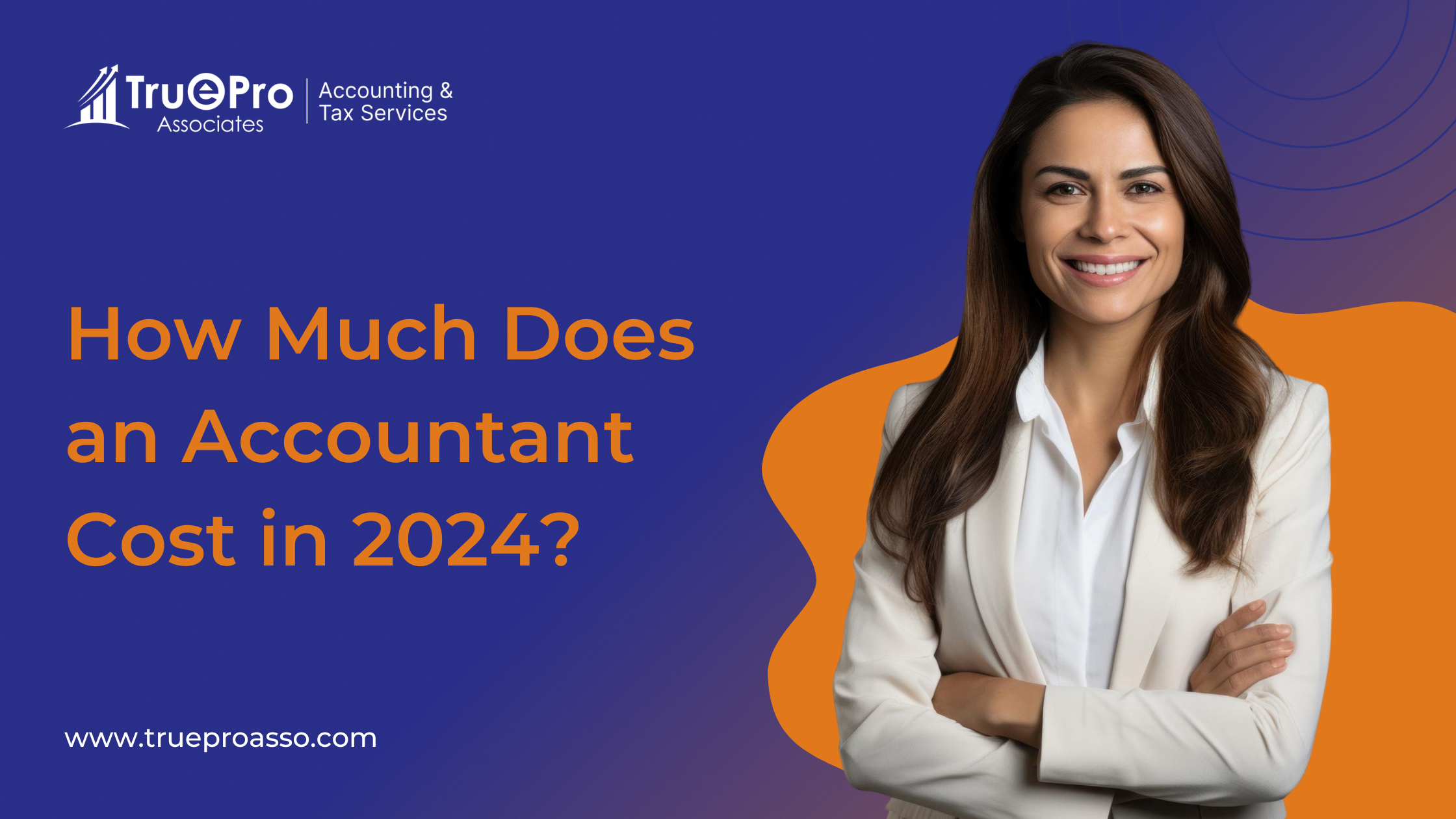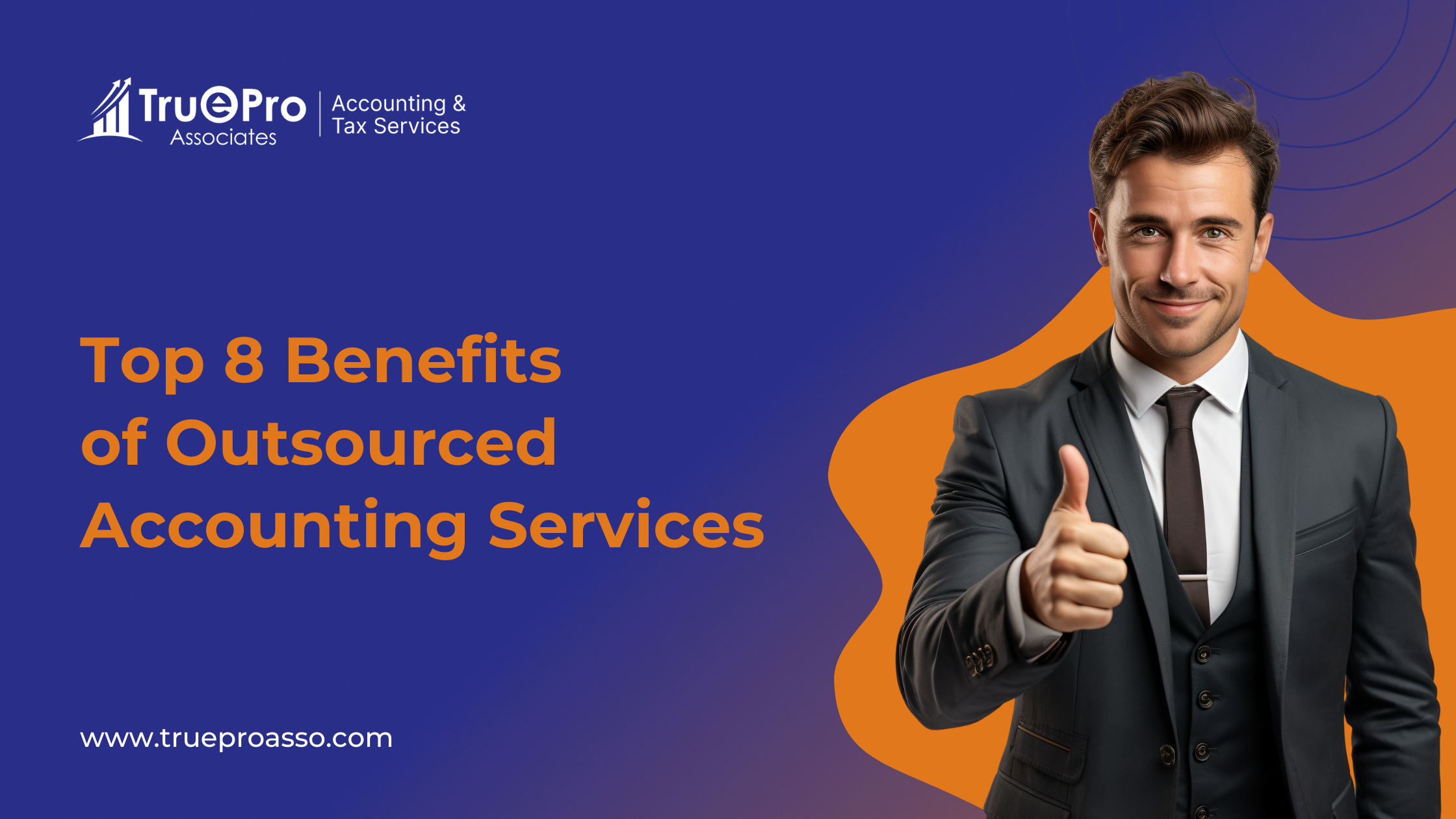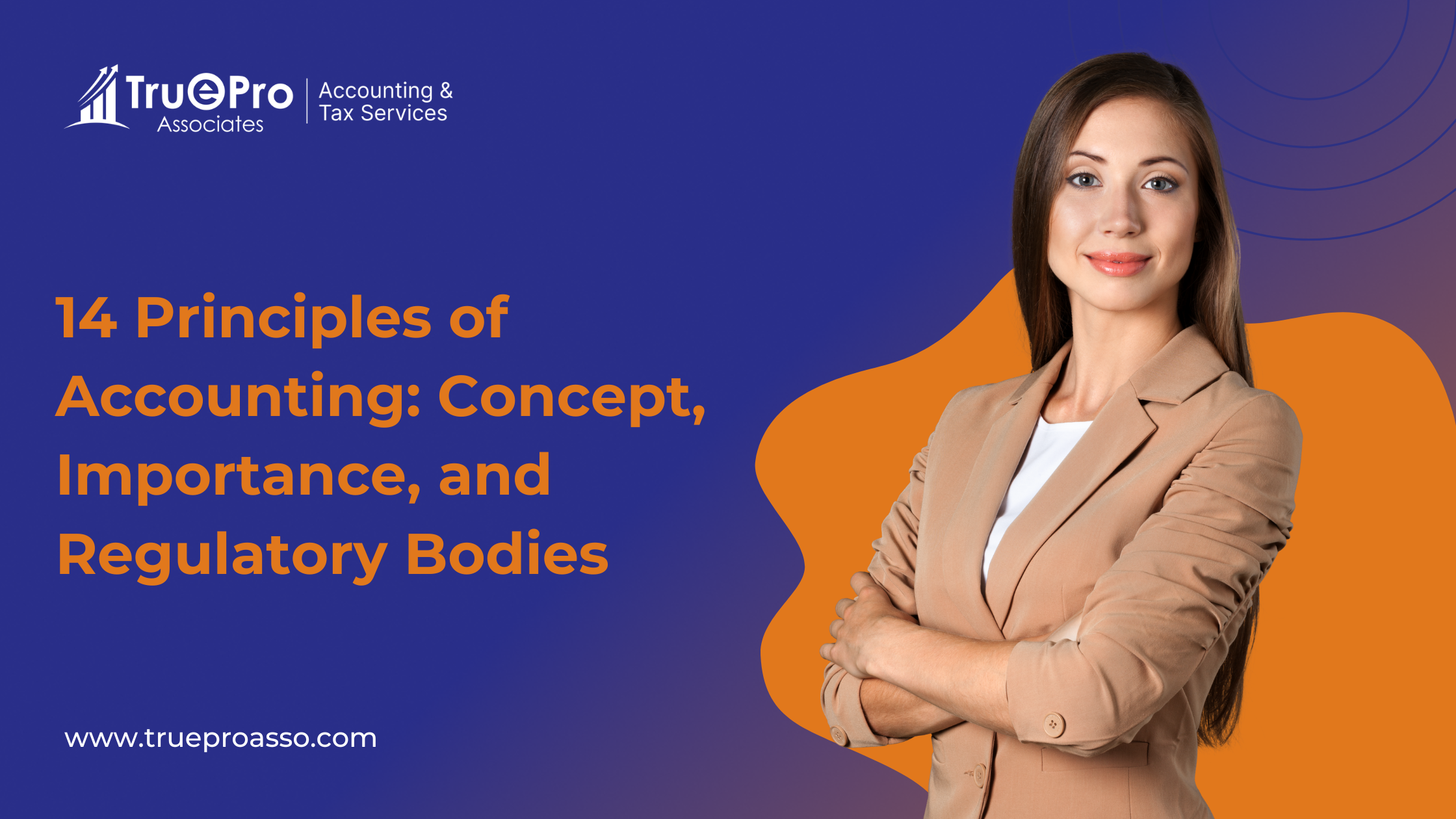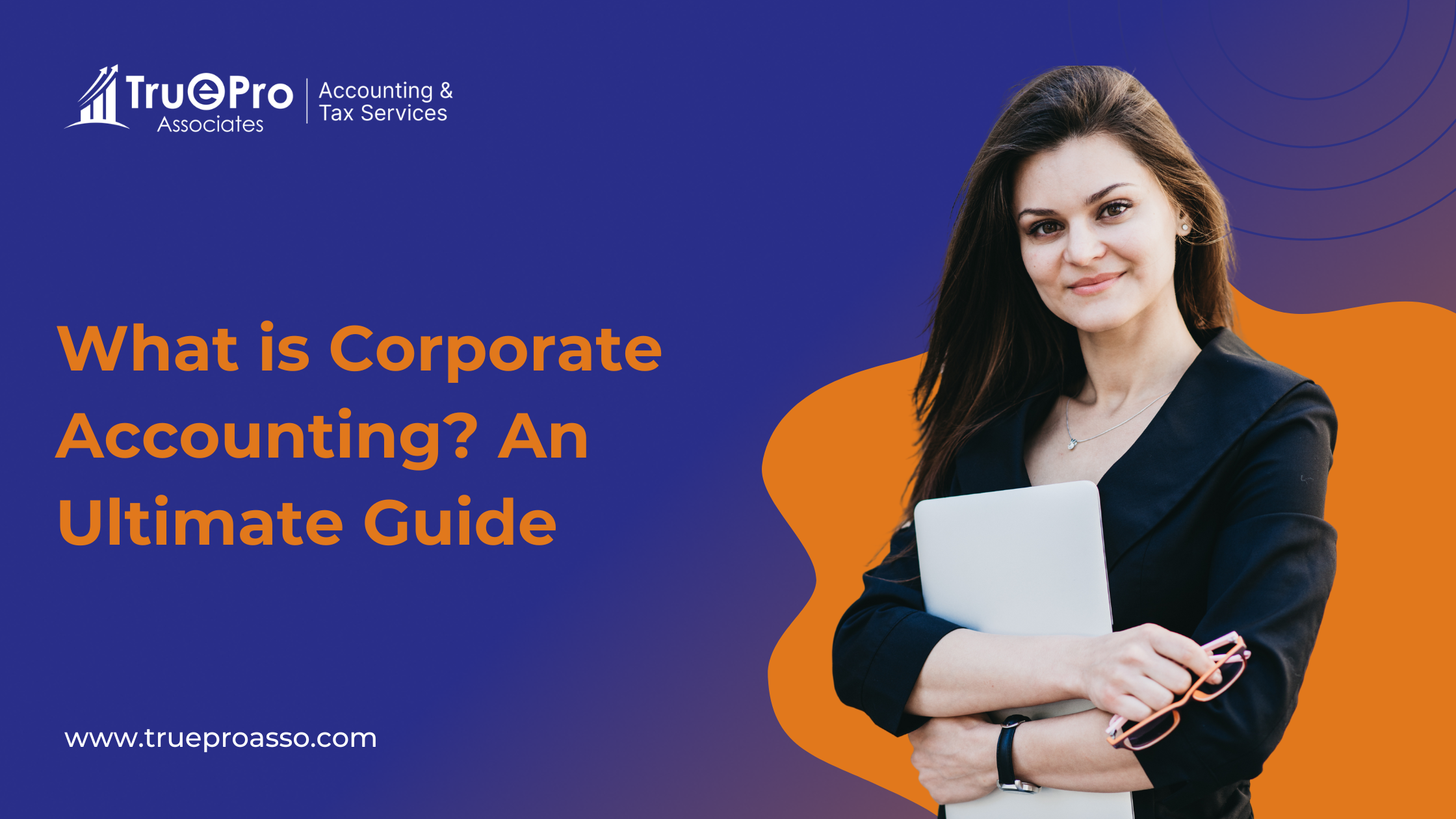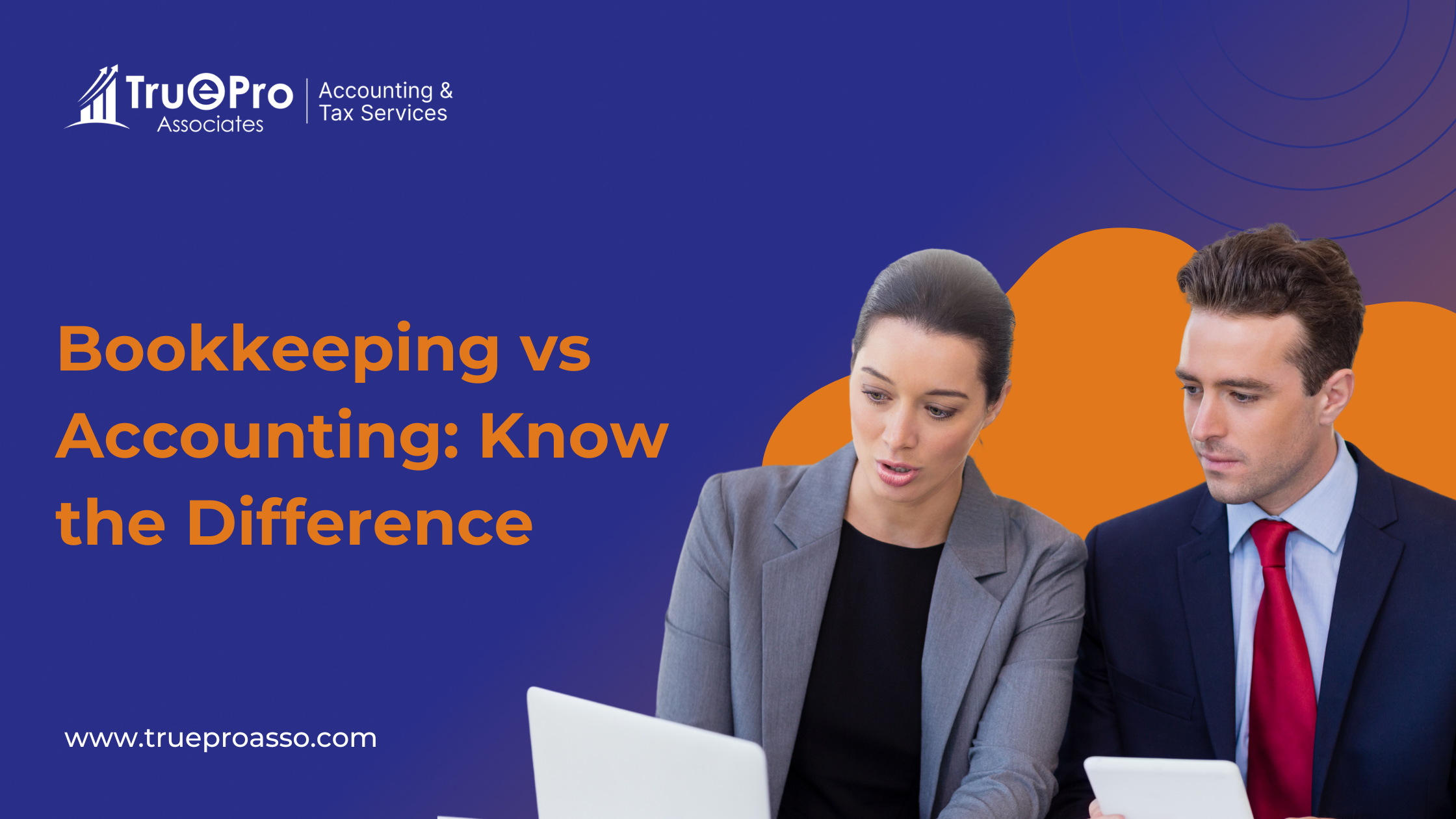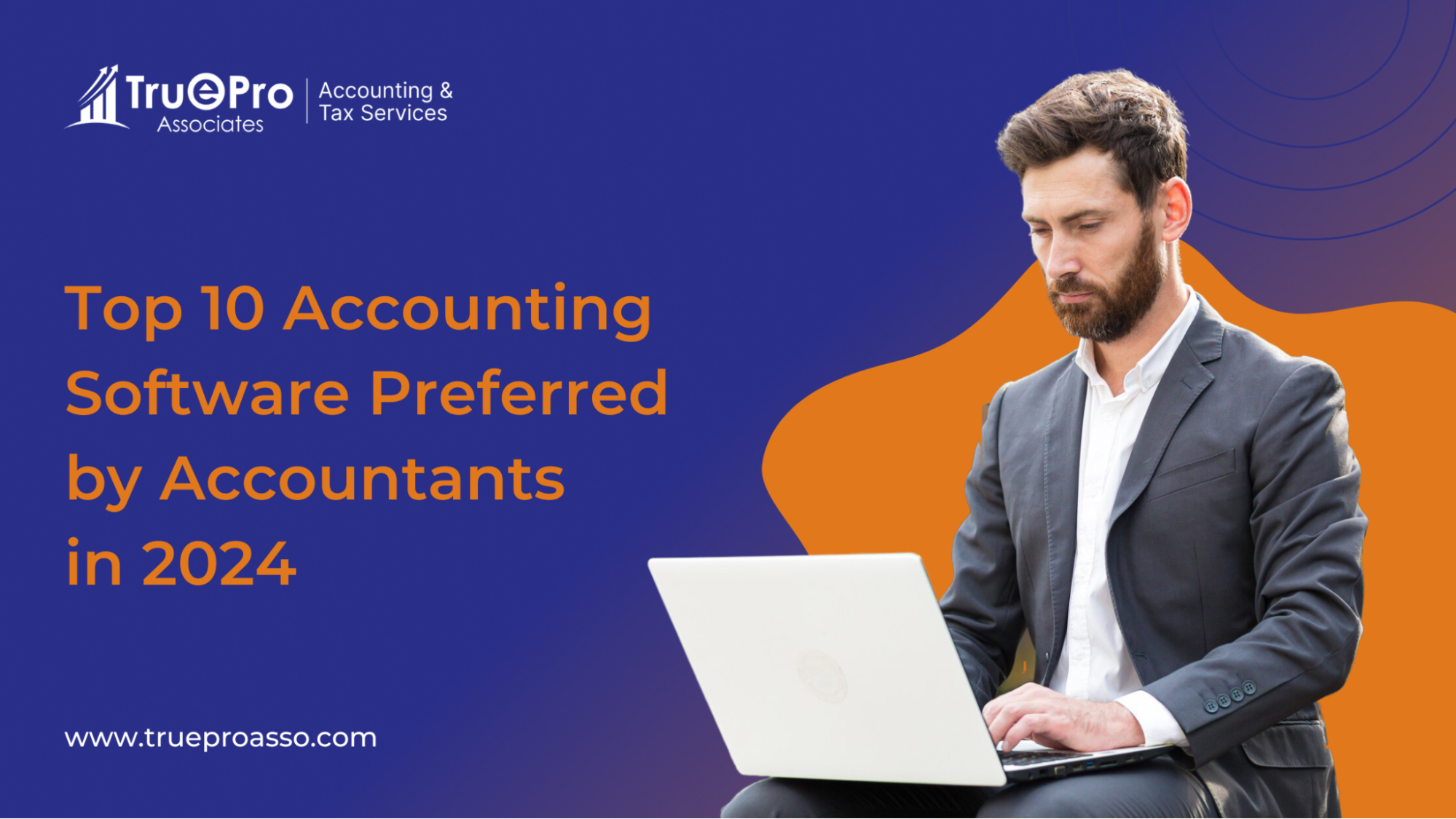Struggling to find time to manage all your receipts and tax forms?
Are you concerned about missing valuable tax deductions and credits?
Consider how much time you could save by hiring an accountant and how much does an accountant cost you.
Proper tax preparation involves carefully organizing your financial details to determine your tax obligations and possible refunds. A tax accountant can help you track your expenses and ensure all necessary forms are filled out and filed correctly. If you’re thinking about getting professional help, you might be wondering about the cost of an accountant. According to the Bureau of Labor Statistics (BLS), the average hourly rate for accountants is $38. However, the actual fee can vary based on the accountant’s experience and the specific needs of your business.
So, how much will you end up paying for an accountant? In this blog post, we’ll provide a detailed analysis of the cost of hiring an accountant, explain what influences these fees, and offer some tips on whether hiring an accountant could be a cost-effective choice for you.
The Role of an Accountant in Your Business
An accountant manages your financial records, prepares and files taxes, creates financial statements, and offers strategic financial advice.
The Benefits of Hiring an Accountant
- Expertise: Accountants know how to ensure your finances comply with laws and are managed according to the latest practices.
- Efficiency: An accountant saves you time on financial management, freeing you to focus on core business activities.
- Strategic Planning: They provide insights and analyses to help with informed decision-making and future business planning.
Business Advice: Accountants assist with budgeting, forecasting, and managing cash flow and offer advice on investments and financial strategies.
The Cost of Tax Preparation in the US
Tax preparation fees can vary widely. But before this, you need to know what type of tax returns can be filed:
- Personal Tax Returns: Individuals with simple tax scenarios, like those with a single source of income and standard deductions, typically face costs of around $200.
- Business Tax Returns: Small businesses dealing with state and federal taxes usually incur fees between $1,200 and $2,500, while larger corporations may pay upwards of $5,000.
- Estate and Trust Tax Preparation: Handling estate and trust taxes, known for their complexity and specific regulations, generally costs about $3,000 on average.
In the US, hiring an accountant typically costs between $170 and $250 for straightforward tax returns. However, tax preparation fees can increase to $450 or more for more complex financial situations or when hiring highly qualified specialists. The average cost to hire an accountant can be structured in various ways:
- Hourly Rates: Costs can range significantly based on expertise, with some rates as low as under $37 to over $400 per hour.
- Per-project Fees: Suitable for specific tasks with a defined scope, allowing for a one-time fee based on estimated hours.
- Monthly Retainer: Ideal for ongoing services, where costs are predetermined and included in monthly business expenses.
While the initial cost may seem high, professional tax preparation saves significant time and reduces the risk of costly errors. Additionally, tax professionals often identify potential savings, making the investment financially beneficial in the long run.
Factors Determining the Cost of Hiring an Accountant
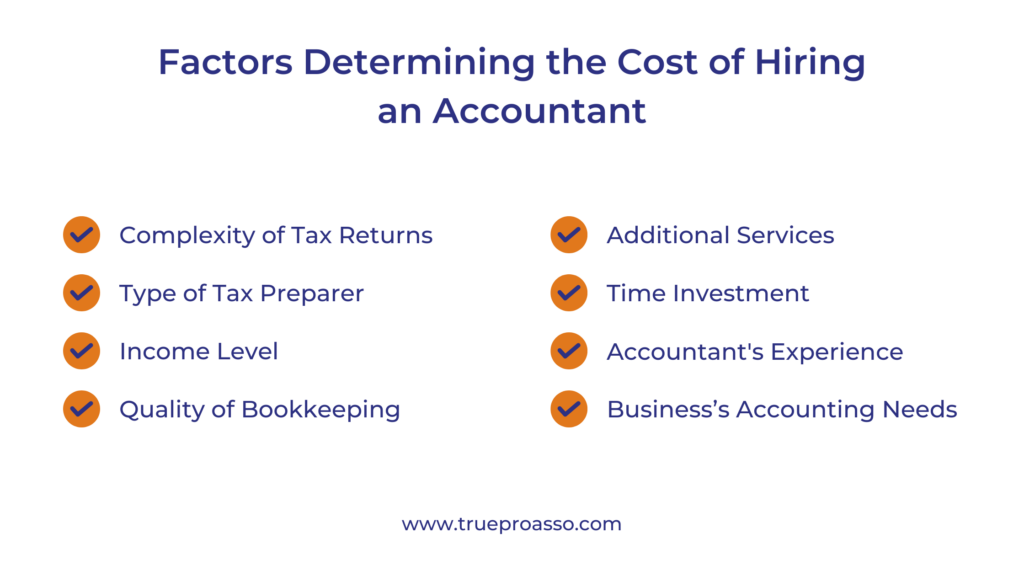
When considering accountant costs for hiring a tax professional, multiple factors significantly impact the final amount you will pay. Here’s a detailed breakdown of what influences these costs:
1. Complexity of Tax Returns
The more difficult your tax situation—such as having multiple income sources, owning rental property, or managing large investments—the more time and expertise required, increasing the cost.
2. Type of Tax Preparer
Costs vary significantly among different types of tax preparers. Enrolled agents may charge $115, offering a cost-effective solution for many taxpayers. CPAs generally charge between $176 and $273 due to their specialized certification and knowledge, whereas attorneys with extensive tax law expertise can charge upwards of $220 to $425.
3. Income Level
Your earnings level impacts the complexity of your tax return. Higher incomes often involve more detailed filings, leading to higher preparation costs due to the increased effort to optimize tax savings.
4. Quality of Bookkeeping
Efficient and organized record-keeping simplifies the tax preparation process. Poorly managed books may require more effort from your accountant, increasing costs. Consider maintaining good records or hiring a bookkeeper to manage this aspect efficiently.
5. Additional Services
Accountants might offer additional services, such as business forecasting or estate planning. When packaged with tax preparation or requested separately, these services can affect the overall cost.
6. Time Investment
The amount of time it takes to prepare your taxes is a fundamental cost factor. More complex finances take longer to sort through and, thus, will be more expensive.
7. Accountant’s Experience
The accountant’s experience level and qualifications also influence costs. Expect CPA consultation fees to be higher for a highly experienced CPA or a specialist with advanced degrees or certifications like CFE (Certified Fraud Examiner) or CMA (Certified Management Accountant).
8. Business’s Accounting Needs
Your business’s specific accounting needs, such as the required frequency and type of services (e.g., payroll management, auditing, tax planning, and filing), significantly determine the accountant consultation fees.
Understanding these factors will help you better anticipate the cost of hiring an accountant for taxes and ensure that you find the best match for your financial needs and budget constraints.
Different Types of Accountants and Their Rates
Choosing the right accountant for your business involves understanding the various types of accountants and their typical charges. Here’s a straightforward guide to help you navigate your options.
I. Certified Public Accountant (CPA)
CPAs are highly trained professionals who have completed rigorous education and training to earn their certification. They specialize in:
- Financial Audits: Ensuring financial records are accurate and comply with laws.
- Tax Services: Helping with tax return preparation, liability minimization, and compliance.
- Consulting: Offering strategic financial advice to aid business decision-making.
CPAs charge hourly, with rates varying by experience, location, and task complexity. In the US, typical salaries range from $2,900 to $10,500 monthly.
II. Bookkeepers
Bookkeepers maintain day-to-day financial transactions, which is vital in keeping financial records accurate and current.
- Record Keeping: They document financial transactions such as expenses, income, and purchases.
- Bank Reconciliation: Bookkeepers ensure bank statements match financial records, highlighting any discrepancies.
- Financial Reports: They produce regular reports to outline a business’s financial status.
In the US, bookkeepers can earn between $4,500 and $9,500 per month or charge an average hourly rate of $19.44.
III. Other Accounting Professionals
Accounting includes specialized roles like enrolled agents (EAs) and financial analysts.
- Enrolled Agents: Licensed by the IRS, EAs represent taxpayers in audits and other tax dealings.
- Financial Analysts: These professionals focus on financial analysis and forecasting.
Rates for these specialized accountants vary, so it’s crucial to compare fees to ensure you receive good value.
By understanding the roles and accounting service fees associated with different types of accountants, you can decide which accountant best suits your business needs.
Accountant Fee Structure Across Different Business Scales
The typical costs associated with hiring accounting services depend on the size and complexity of the business, helping businesses make informed decisions based on their specific needs and budget are explained in detail as follows:
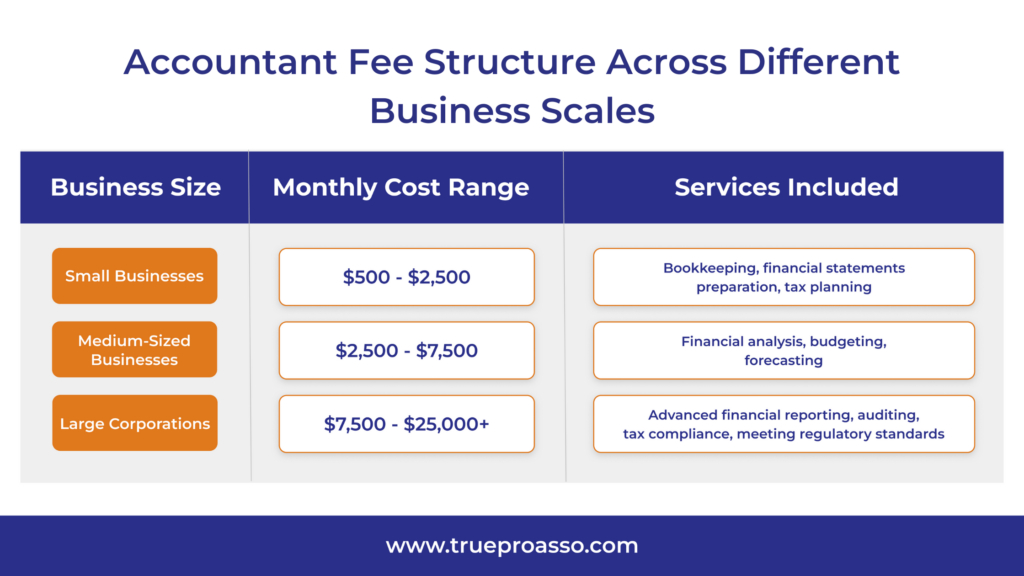
Smart Budgeting Tips for Your Accounting Needs
Effective budgeting for accounting services is important for maintaining your business’s financial health. Below, we will discuss some tips that can help you allocate funds wisely and ensure you the most value from your investment in accounting services.
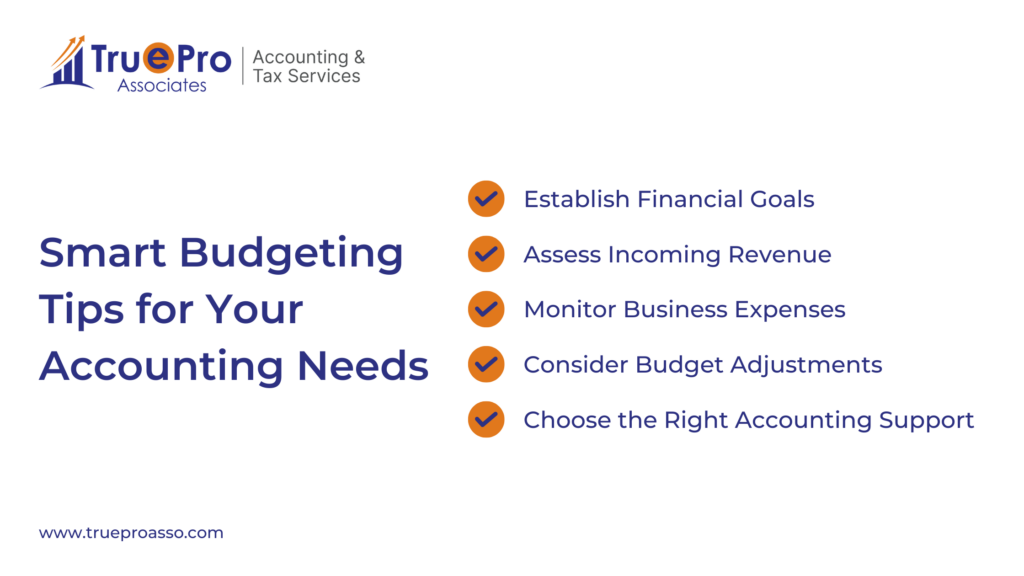
1. Establish Financial Goals
Define clear financial objectives for your business. Use these goals to direct your budgeting for accounting services, ensuring resources align with your financial targets. These goals aid in long-term planning and enhance accountability in financial decision-making.
2. Assess Incoming Revenue
Base your budget on a thorough assessment of your business revenue. Understanding revenue streams helps allocate funds appropriately and set spending limits. A clear grasp of revenue supports informed decisions for necessary accounting support, such as bookkeeping or tax services
3. Monitor Business Expenses
Monitor your finances and adapt your budget to accommodate the changing small business accountant cost. Identify and address discrepancies to maintain budget integrity. Adjust services to ensure cost-effectiveness, such as prioritizing essential accounting tasks during peak times.
4. Consider Budget Adjustments
Stay flexible and adapt your budget to match business dynamics and market conditions. Factor in seasonal trends and specific industry events that could affect your finances. Evaluate technological enhancements or service prioritizations to improve budget efficiency.
5. Choose the Right Accounting Support
Decide on the type of accounting support needed, whether a CPA, an accounting firm, or other services. Conduct thorough research to identify reputable providers based on experience, services, and client feedback. Compare options to find the best fit for your business needs and budget constraints.
How Can You Reduce Accounting Costs?
Reducing the cost to hire an accountant is crucial for businesses looking to maximize efficiency and profitability. Here are practical ways to manage these expenses:
1. DIY Accounting Software vs. Professional Services
Utilizing do-it-yourself accounting software can be a cost-effective solution for small businesses with straightforward financial transactions. These tools often come with user-friendly interfaces and basic features for managing accounts, such as invoicing and simple bookkeeping.
Hiring professional accountants might be necessary for businesses with more complex needs, such as handling diverse revenue streams or regulatory compliance issues. Weigh the complexity of your financial activities against the cost of software versus professional services to determine the best option.
2. Choosing Between Full-Time and Part-Time Accountants
Hiring a full-time accountant makes sense if your business requires daily financial monitoring, comprehensive reporting, and ongoing fiscal management. This is often the case for larger companies or industries with complex accounting needs.
Smaller businesses or those with less complex finances might benefit from part-time accounting help. This option reduces costs while providing professional oversight and financial management necessary for critical tasks like tax preparation and financial compliance.
Implementing these strategies can significantly reduce your accounting costs, allowing you to allocate resources more effectively within your business operations.
Simplify Your Accounts with TruePro Associates
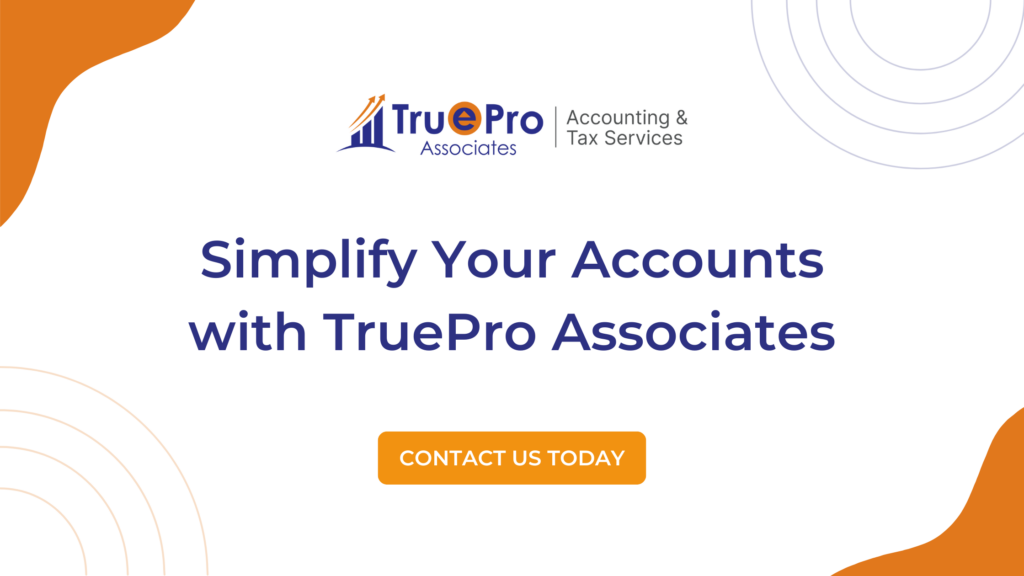
At TruePro Associates, we offer comprehensive accounting services tailored to meet your unique business needs.
Why Choose TruePro Associates?
- Expertise You Can Trust: Our experienced accountants are well-versed in the latest industry practices.
- Customized Solutions: We take the time to understand your specific circumstances and tailor our accounting services accordingly.
- Transparent Pricing: We discuss our fees upfront, ensuring you understand the value of the services you receive.
Schedule a consultation and learn how we can assist you in achieving your accounting and financial goals.
Contact us today!
FAQs
Q1. What do most CPAs charge per hour?
Ans. CPA charges vary, but typically, you can expect rates from $100 to $400 per hour depending on their experience and your business’s complexity.
Q2. Is there a need for accountants in the future?
Ans. Yes, accountants will continue to be in demand, especially as financial regulations and technologies evolve.
Q3. Can I prepare my company’s taxes myself?
Ans. While preparing your company’s taxes yourself is possible, hiring a professional can reduce errors and optimize tax savings.
Q4. How can I verify a CPA’s credentials?
Ans. Verify a CPA’s credentials through your state’s Board of Accountancy website or by contacting the American Institute of CPAs (AICPA).

